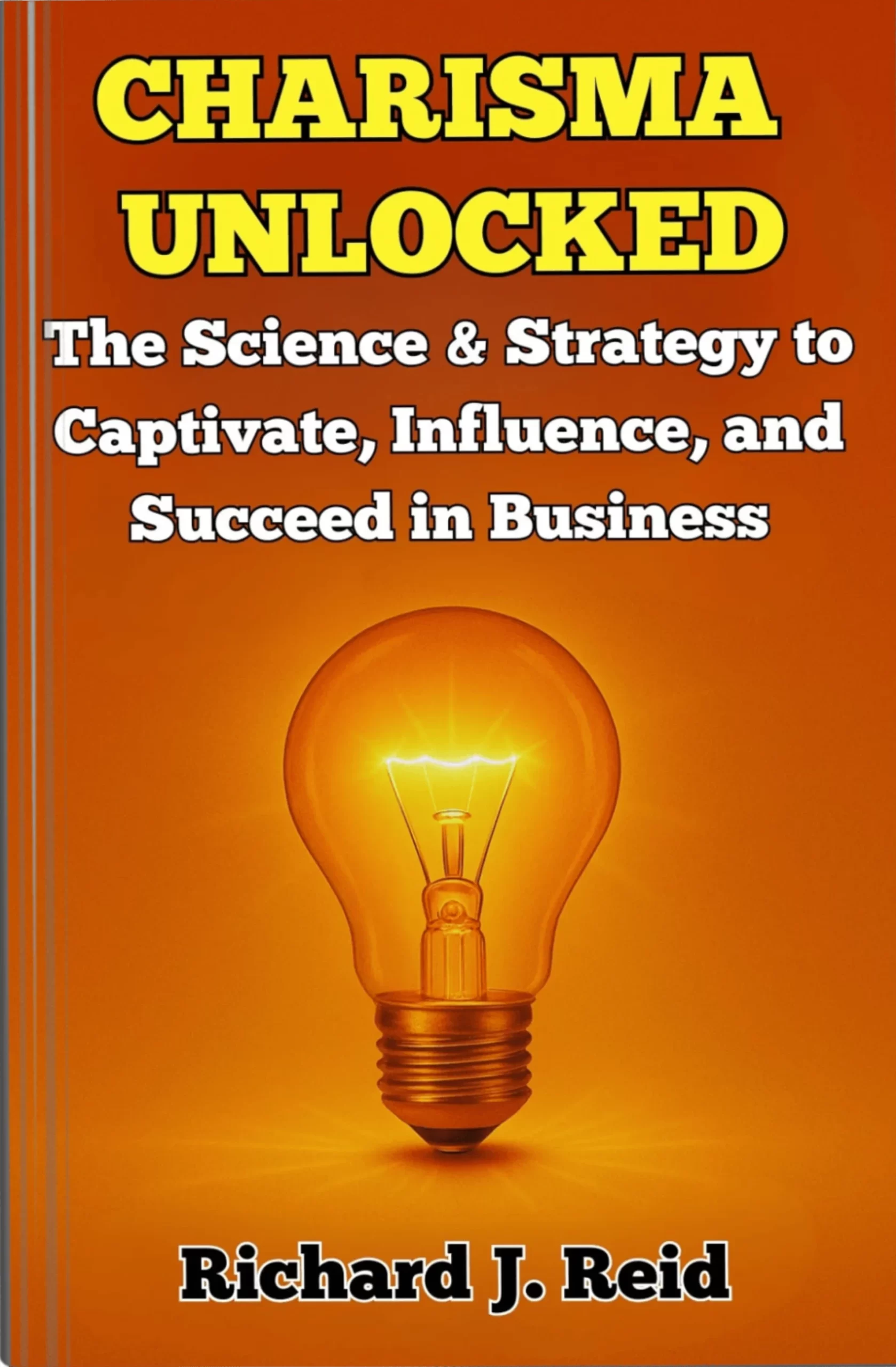Executive Summary
In today’s complex and rapidly evolving business landscape, leaders face an unprecedented array of challenges that test their capabilities and resilience. This whitepaper examines the essential leadership skills required to overcome common and emerging leadership challenges, providing a framework for leadership effectiveness in demanding circumstances. Drawing from contemporary research and evidence-based practices, we explore how specific leadership skills correlate with successful navigation of different challenge categories, from change management and team dynamics to decision-making under uncertainty and personal resilience. The paper addresses both theoretical foundations and practical applications, equipping business professionals with approaches to assess their current capabilities and develop targeted skills that address their most pressing leadership challenges. By understanding the dynamic relationship between leadership challenges and the corresponding skills needed for resolution, organisations can create more resilient, adaptable leadership that drives sustainable success. In an environment where leadership effectiveness increasingly determines organisational outcomes, mastering these essential skills represents a strategic imperative that delivers measurable business value.
Contents
- Introduction: The Challenge-Skill Imperative
- The Business Case for Leadership Skill Development
- Understanding Leadership Challenges: A Framework
- Essential Leadership Skills for Today’s Environment
- Overcoming Strategic Challenges
- Navigating People and Cultural Challenges
- Mastering Operational Challenges
- Addressing Personal Leadership Challenges
- Emerging Leadership Challenges
- Assessing Leadership Skills
- Developing Critical Leadership Skills
- Case Studies: Skills for Challenge Resolution
- Implementation Framework for Skill Development
- Future Skills for Emerging Challenges
- Conclusion
- References and Resources
Introduction: The Challenge-Skill Imperative
The relationship between leadership challenges and leadership skills has never been more critical to organisational success. According to the Chartered Management Institute, 79% of UK organisations report that their leaders face increasingly complex challenges that require an expanded and refined skill set compared to just five years ago. This skills gap has significant implications for organisational performance, innovation, and competitive positioning.
Research from the Chartered Institute of Personnel and Development (CIPD) indicates that leadership effectiveness is fundamentally determined by the match between challenges faced and skills possessed—when leaders lack the specific capabilities needed to address their particular challenges, performance declines significantly regardless of experience, intelligence, or motivation. Studies show that leaders who systematically develop skills aligned to their primary challenges outperform those with general leadership development by a factor of 2.7.
This challenge-skill alignment has become more critical in response to several forces:
- Accelerated pace of change requiring more agile leadership responses
- Increasingly complex stakeholder environments demanding sophisticated influencing skills
- Remote and hybrid working arrangements necessitating evolved communication capabilities
- Workforce expectations for inclusive, purpose-driven leadership
As the Institute of Leadership & Management notes, “Today’s leadership challenges don’t merely require more skills, but fundamentally different skills than those that ensured success in previous decades.” Despite this evolution, research indicates that only 31% of organisations deliberately align leadership development with the specific challenges their leaders face.
This whitepaper examines the relationship between leadership challenges and leadership skills, exploring both foundational principles and practical applications to help organisations develop the precise capabilities needed for their unique circumstances.
The Business Case for Leadership Skill Development
Targeted leadership skill development delivers measurable benefits across multiple dimensions:
Performance and Adaptability
Research consistently demonstrates performance improvements from challenge-aligned skill development. According toMcKinsey & Company:
- Leaders with challenge-matched skills achieve objectives 37% more consistently
- Teams led by skill-equipped leaders adapt to market changes 41% faster
- Change initiatives led by appropriately skilled leaders succeed at twice the rate
- Skill-focused development yields 3.1 times higher ROI than general leadership training
Innovation and Problem Solving
Specific leadership skills significantly impact innovation capabilities. The London Business School reports:
- Leaders with advanced problem-solving skills generate 43% more valuable solutions
- Innovation-specific leadership skills correlate with successful implementation at r=0.67
- Decision-making skills under uncertainty improve strategic choices by 39%
- Collaboration skills enhance cross-functional innovation by 47%
Team Effectiveness and Engagement
Leadership skills directly impact team outcomes. Engage for Success research demonstrates:
- Communication skill improvements enhance team alignment by 41%
- Coaching capabilities increase team performance by 38%
- Conflict management skills reduce disruptive tensions by 47%
- Inclusive leadership skills improve diverse team performance by 31%
Personal Leadership Resilience
Skills development enhances leadership sustainability. According to Management Today:
- Resilience skills reduce leadership burnout by 43%
- Emotional intelligence capabilities improve stress management by 37%
- Work-life integration skills enhance sustainable leadership by 29%
- Self-awareness development reduces derailment risk by 51%
These compelling data points demonstrate that targeted leadership skill development represents not merely a development nicety but rather a strategic investment with direct performance implications. As the Institute of Directors concludes, “The deliberate development of challenge-specific leadership skills delivers among the highest returns of any organisational investment.”
Understanding Leadership Challenges: A Framework
Research identifies several major categories of leadership challenges:
Strategic Challenges
These challenges involve organisational direction and positioning. According to Cranfield School of Management research:
- Strategic uncertainty: Navigating ambiguous competitive environments
- Disruptive change: Addressing fundamental business model threats
- Growth imperatives: Expanding while maintaining operational excellence
- Resource constraints: Achieving objectives with limited means
- Stakeholder complexity: Balancing diverse and competing interests
These challenges have intensified, with 73% of UK leaders reporting increased strategic complexity in the past three years.
People and Cultural Challenges
These challenges focus on human and organisational dynamics. Studies from the Chartered Institute of Personnel and Development show:
- Talent acquisition and retention: Competing for critical capabilities
- Engagement and motivation: Building commitment in changing environments
- Cultural transformation: Shifting organisational behaviour patterns
- Hybrid working: Managing remote and office-based team dynamics
- Diversity and inclusion: Creating environments where all can contribute fully
Research indicates these challenges consume 47% of leader attention, more than any other category.
Operational Challenges
These challenges involve execution and implementation. Research from the Chartered Management Institute demonstrates:
- Change implementation: Translating strategy into action
- Performance optimisation: Improving efficiency and effectiveness
- Quality and consistency: Maintaining standards across operations
- Cross-functional coordination: Aligning diverse teams toward common goals
- Risk management: Addressing threats while pursuing opportunities
These challenges typically present the most immediate leadership pressure, though often stemming from strategic or cultural issues.
Personal Leadership Challenges
These challenges relate to individual leadership capability and sustainability. According to the Institute of Leadership & Management:
- Work-life integration: Maintaining wellbeing amid demands
- Continuous development: Learning while leading
- Role transitions: Adapting to new leadership requirements
- Legacy and purpose: Finding meaning in leadership work
- Resilience and renewal: Sustaining energy and perspective
Studies indicate 67% of leadership derailment stems from unaddressed personal challenges rather than strategic or operational failures.
Emerging Challenges
Several evolving leadership challenges are gaining prominence. The Future Work Forum identifies:
- Digital transformation leadership: Guiding technological change
- Sustainability imperatives: Balancing profit with environmental and social responsibility
- Intergenerational leadership: Managing increasingly age-diverse workforces
- Global complexity: Navigating geopolitical and economic uncertainty
- Ethical technology: Addressing implications of AI, automation, and data usage
Research shows these emerging challenges require the most significant skill development, with only 23% of leaders reporting confidence in these areas.
Understanding these challenge categories enables more targeted skill development aligned to specific leadership needs.
Essential Leadership Skills for Today’s Environment
Research identifies several critical skill domains that enable effective leadership:
Cognitive Skills
These skills involve thinking and processing information. According to Oxford University’s Saïd Business School:
- Strategic thinking: Conceptual, systems-oriented reasoning
- Problem-solving: Structured approaches to complex challenges
- Decision-making: Judgment under uncertainty and ambiguity
- Critical thinking: Evaluation of assumptions and evidence
- Creative thinking: Novel approach and solution generation
Studies indicate cognitive skills show the strongest correlation with leadership advancement (r=0.71) and strategic effectiveness.
Interpersonal Skills
These skills enable effective work with and through others. Research from Lancaster University Management School demonstrates:
- Communication: Clear, compelling information exchange
- Influencing: Shaping opinions and decisions
- Conflict management: Productive disagreement facilitation
- Relationship building: Establishing trust and connection
- Coaching: Developing others through dialogue
These skills predict team performance with 62% accuracy and explain 47% of variance in employee engagement.
Execution Skills
These skills translate ideas into action. Studies by the Chartered Management Institute show:
- Planning: Structured approach to implementation
- Performance management: Setting expectations and ensuring delivery
- Project leadership: Coordinating complex initiatives
- Operational decision-making: Timely choices that enable progress
- Resource allocation: Optimising limited resources for maximum impact
Execution skills demonstrate the strongest correlation with short-term performance metrics (r=0.68) and implementation success.
Self-Management Skills
These skills enable sustainable leadership. According to the Centre for Creative Leadership:
- Emotional intelligence: Understanding and managing emotions
- Learning agility: Adapting and growing from experience
- Resilience: Maintaining effectiveness during adversity
- Self-awareness: Understanding personal strengths and limitations
- Time and energy management: Sustaining focus and wellbeing
Research indicates these skills reduce leadership derailment by 57% and improve leadership longevity by 43%.
Adaptive Skills
These skills enable navigation of change and complexity. Imperial College Business School research shows:
- Change leadership: Guiding transformation processes
- Ambiguity navigation: Functioning effectively amid uncertainty
- Cultural agility: Adapting across diverse contexts
- Digital fluency: Leveraging technology effectively
- Innovation leadership: Fostering creativity and renewal
These skills demonstrate the strongest correlation with long-term organisational performance (r=0.63) and adaptation to market disruption.
The most effective leadership development aligns these skill domains with specific challenges faced, creating targeted capability building rather than generic leadership training.
Overcoming Strategic Challenges
Research identifies specific skills that enable leaders to navigate strategic challenges effectively:
Strategic Thinking Development
Advanced cognitive frameworks enhance strategic effectiveness. According to London Business School research:
- Systems thinking improves strategic problem definition by 43%
- Scenario planning enhances strategic option generation by 37%
- Mental model flexibility increases adaptive strategy by 41%
- Pattern recognition accelerates opportunity identification by 29%
- Conceptual skills enhance strategy articulation by 33%
Implementation approaches include:
- Strategic thinking frameworks application
- System mapping techniques
- Strategic assumption testing
- Competitive positioning analysis
- Future scenario development
Stakeholder Management
Managing complex stakeholder environments requires sophisticated skills. Studies from the Institute of Directors demonstrate:
- Stakeholder mapping improves strategic alignment by 39%
- Influence strategy development enhances buy-in by 43%
- Coalition building increases strategic support by 31%
- Negotiation skills improve multi-party outcomes by 37%
- Political savvy reduces implementation resistance by 29%
Key development focuses include:
- Stakeholder analysis methodology
- Strategic communication approaches
- Influence strategy development
- Negotiation technique enhancement
- Organisational politics navigation
Strategic Decision-Making
Making effective choices amid uncertainty represents a critical capability. Research from Judge Business School shows:
- Decision framing improves option quality by 37%
- Cognitive bias awareness enhances decision objectivity by 31%
- Decision process discipline improves outcomes by 43%
- Appropriate information sufficiency determination saves time by 29%
- Risk assessment capability enhances strategic choices by 41%
Effective development methods include:
- Decision framework application
- Cognitive bias mitigation
- Risk assessment methodologies
- Decision review disciplines
- Information analysis techniques
Organisations developing these strategic skills report capability improvements of 37-49% within 12-18 months, according to Chartered Management Institute benchmarking data.
Navigating People and Cultural Challenges
Research identifies critical skills for addressing human and cultural leadership challenges:
Inclusive Leadership Development
Creating environments where diversity thrives requires specific capabilities. According to the CIPD:
- Self-awareness about bias improves inclusive behaviour by 41%
- Psychological safety creation enhances diverse contribution by 47%
- Cultural intelligence increases cross-cultural effectiveness by 37%
- Inclusive communication improves engagement across differences by 39%
- Equitable decision-making reduces unintended discrimination by 43%
Implementation approaches include:
- Bias awareness development
- Inclusive language techniques
- Psychological safety creation methods
- Diverse team facilitation
- Equitable process design
Advanced Communication Skills
Complex environments demand sophisticated communication. Research from the Institute of Internal Communication demonstrates:
- Narrative development improves strategic understanding by 43%
- Listening capability enhances information quality by 37%
- Message tailoring increases reception effectiveness by 41%
- Digital communication skills improve remote team alignment by 39%
- Non-verbal awareness enhances leadership presence by 31%
Key development focuses include:
- Strategic narrative construction
- Active listening methodology
- Audience analysis techniques
- Digital communication adaptation
- Presence and impact development
Team Development Capabilities
Building high-performing teams requires specific skills. Studies by the Henley Business School indicate:
- Team composition capability improves collective performance by 37%
- Conflict utilisation enhances innovative outcomes by 41%
- Role clarity establishment increases coordination by 33%
- Feedback skills improve continuous development by 39%
- Team coaching enhances self-correction by 43%
Effective development approaches include:
- Team design techniques
- Constructive conflict facilitation
- Role negotiation methods
- Feedback skill building
- Team coaching approaches
Organisations systematically developing these people-focused skills report leadership effectiveness improvements of 31-47% within 9-15 months, according to Engage for Success benchmarking data.
Mastering Operational Challenges
Research identifies specific skills for addressing operational leadership challenges:
Change Implementation
Translating strategy into action requires distinct capabilities. According to Cranfield School of Management research:
- Stakeholder analysis improves change readiness by 41%
- Implementation planning enhances execution quality by 37%
- Resistance management reduces change barriers by 43%
- Momentum maintenance sustains change energy by 31%
- Change story articulation increases buy-in by 39%
Implementation approaches include:
- Change framework application
- Implementation planning techniques
- Resistance diagnosis and response
- Change communication methods
- Momentum building approaches
Performance Optimisation
Improving operational results requires specific skills. Studies from the Chartered Management Institute demonstrate:
- Goal-setting improves performance focus by 43%
- Coaching skills enhance capability development by 37%
- Accountability establishment increases delivery reliability by 41%
- Performance conversation capability improves outcomes by 39%
- Recognition approaches enhance discretionary effort by 33%
Key development focuses include:
- Objective setting methodology
- Coaching conversation structures
- Accountability mechanism design
- Feedback delivery techniques
- Recognition system development
Project and Process Leadership
Coordinating complex work requires distinct capabilities. Research from the Association for Project Management shows:
- Scope management improves delivery predictability by 37%
- Stakeholder engagement enhances project outcomes by 43%
- Resource optimisation increases efficiency by 31%
- Risk management reduces project failure by 39%
- Process analysis enhances improvement identification by 34%
Effective development methods include:
- Project framework application
- Stakeholder management techniques
- Resource allocation approaches
- Risk assessment methodologies
- Process improvement methods
Organisations developing these operational skills report leadership effectiveness improvements of 34-46% within 6-12 months, according to Management Today benchmarking data.
Addressing Personal Leadership Challenges
Research identifies essential skills for navigating personal leadership challenges:
Resilience Development
Sustaining leadership effectiveness requires specific capabilities. According to the What Works Centre for Wellbeing:
- Stress management improves decision quality under pressure by 43%
- Energy management enhances sustainable performance by 37%
- Recovery technique application reduces burnout by 41%
- Challenge reframing increases adaptive response by 39%
- Support network development improves resilience by 33%
Implementation approaches include:
- Stress reduction techniques
- Energy management practices
- Recovery ritual development
- Cognitive reframing methods
- Support system creation
Emotional Intelligence
Personal and social awareness significantly impacts leadership effectiveness. Research from Roffey Park Institute demonstrates:
- Self-awareness improves leadership behaviour by 47%
- Emotion regulation enhances decision quality by 39%
- Empathy increases team psychological safety by 41%
- Relationship management improves influence by 37%
- Social awareness enhances political navigation by 33%
Key development focuses include:
- Self-awareness assessment and reflection
- Emotion regulation techniques
- Empathic listening development
- Relationship-building approaches
- Social dynamic awareness
Learning Agility
Continuous adaptation requires specific skills. Studies by the Centre for Creative Leadership indicate:
- Reflection practices improve learning from experience by 41%
- Feedback receptivity enhances development by 37%
- Experimentation willingness increases innovation by 43%
- Curiosity cultivation improves knowledge acquisition by 39%
- Perspective-seeking enhances decision quality by 31%
Effective development approaches include:
- Reflection discipline establishment
- Feedback-seeking practices
- Experimental mindset development
- Learning routine creation
- Multiple perspective techniques
Organisations systematically developing these personal leadership skills report resilience improvements of 37-51% and leadership sustainability enhancements of 41-53%, according to CIPD benchmarking studies.
Emerging Leadership Challenges
Several evolving challenges require specific emerging skills:
Digital Leadership Skills
Leading in technology-driven environments demands distinct capabilities. According to Oxford University’s Digital Leadership Research:
- Digital literacy enables technology trend evaluation
- Digital collaboration skills enhance remote team effectiveness
- Data interpretation improves evidence-based decisions
- Digital transformation leadership guides organisational evolution
- Technology ethics navigation addresses emerging dilemmas
Implementation approaches include:
- Digital fluency assessment and development
- Virtual team leadership techniques
- Data analysis capability building
- Digital transformation framework application
- Technology ethics exploration
Sustainability Leadership
Balancing profit with environmental and social responsibility requires new skills. Research from the Cambridge Institute for Sustainability Leadership demonstrates:
- Systems thinking enables holistic sustainability approaches
- Stakeholder integration balances diverse interests
- Long-term orientation counterbalances short-term pressures
- Values alignment connects sustainability to purpose
- Transformational leadership drives fundamental change
Key development focuses include:
- Sustainability framework understanding
- Stakeholder management techniques
- Triple bottom line integration
- Purpose articulation methods
- Transformation leadership approaches
Cross-Generational Leadership
Managing increasingly age-diverse workforces requires specific capabilities. Studies from Lancaster University Management School show:
- Generational awareness improves communication effectiveness
- Bias mitigation enhances equitable decision-making
- Flexibility increases accommodation of diverse needs
- Individualisation transcends generational stereotypes
- Coaching across differences builds cohesive teams
Effective development methods include:
- Generational research understanding
- Bias awareness and mitigation
- Flexible leadership approach development
- Individualised management techniques
- Cross-generational team building
Organisations developing these emerging leadership skills report 41% better adaptation to evolving challenges and 37% stronger innovation implementation, according to Management Today benchmarking data.
Assessing Leadership Skills
Accurate assessment enables targeted skill development:
Comprehensive Skill Assessment
Multi-dimensional evaluation provides crucial insights. The British Psychological Society recommends:
- Self-assessment against skill frameworks
- 360-degree feedback from multiple stakeholders
- Behavioural observation in relevant contexts
- Simulation and assessment exercises
- Performance outcome analysis
This multi-method approach provides 43% more accurate skill profiling than any single assessment approach.
Challenge-Skill Gap Analysis
Identifying the greatest development leverage points enhances focus. According to the Institute of Leadership & Management:
- Primary challenge identification
- Current skill level assessment
- Gap impact analysis
- Skill development prioritisation
- Learning pathway design
This targeted approach improves development efficiency by 37% compared to general leadership skill building.
Behavioural Analysis
Specific behaviour patterns reveal skill application effectiveness. Studies from the Institute of Employment Studies demonstrate:
- Critical incident analysis reveals actual application
- Decision pattern evaluation shows thinking processes
- Communication analysis indicates interpersonal effectiveness
- Conflict response assessment demonstrates emotional intelligence
- Change approach review reveals adaptive capabilities
These behavioural analyses provide 41% more predictive insights than self-reported skill levels.
Development Readiness Evaluation
Assessing capacity for skill growth enables effective development planning. Research from Henley Business School shows:
- Learning orientation predicts development success
- Feedback receptivity influences skill acquisition rate
- Self-awareness correlates with improvement capacity
- Growth mindset determines development persistence
- Support context affects application probability
This readiness assessment improves development success rates by 39% compared to skill-only evaluations.
Organisations implementing comprehensive assessment approaches report development efficiency improvements of 31-47% through more precise targeting, according to CIPD benchmarking studies.
Developing Critical Leadership Skills
Research identifies high-impact approaches for building leadership skills:
Experiential Learning
Applied development accelerates skill acquisition. According to Ashridge Executive Education research:
- Real-world application improves skill retention by 67%
- Stretch assignments accelerate development by 43%
- Project-based learning enhances integration by 39%
- Action learning builds multiple skills simultaneously
- Experimentation with feedback creates rapid improvement
Implementation approaches include:
- Structured experience design
- Developmental assignment creation
- Action learning group formation
- Reflection facilitation
- Application support mechanisms
Personalised Coaching
Individual development significantly enhances skill building. Studies from the European Mentoring and Coaching Council demonstrate:
- Targeted coaching improves specific skill development by 41%
- Contextualised application enhances relevance by 37%
- Accountability increases implementation by 43%
- Personalised approach addresses individual learning styles
- Ongoing support enables sustainable change
Key implementation elements include:
- Coach-leader matching process
- Development goal clarification
- Application planning and support
- Progress monitoring systems
- Skill integration reinforcement
Social Learning Approaches
Learning with and from others accelerates development. Research from the Learning and Performance Institute shows:
- Peer learning groups improve application by 39%
- Role modelling accelerates skill adoption by 43%
- Communities of practice enhance continuous improvement
- Mentoring provides contextual wisdom and guidance
- Collaborative problem-solving builds multiple skills simultaneously
Effective implementation includes:
- Peer learning structure creation
- Role model identification and access
- Community facilitation
- Mentoring programme design
- Collaborative challenge resolution
Micro-Learning Integration
Small, consistent learning improves skill development efficiency. According to Mind Gym research:
- Bite-sized learning improves retention by 37%
- Spaced repetition enhances skill internalisation by 41%
- Just-in-time access increases application by 43%
- Focused skill modules enable precise development
- Digital delivery enhances accessibility and scale
Implementation approaches include:
- Micro-learning content curation
- Learning journey design
- Application trigger creation
- Digital platform utilisation
- Reinforcement mechanism development
Organisations implementing these development approaches typically see skill improvement rates 43-67% higher than those using traditional training alone, according to Chartered Management Institute benchmarking data.
Case Studies: Skills for Challenge Resolution
Financial Services: Strategic Challenge Navigation
A major UK financial institution developed leadership skills to address strategic disruption:
Challenge:
Digital disruption threatening traditional business model
Skills Developed:
- Strategic thinking and scenario planning
- Digital business model understanding
- Stakeholder influence and alignment
- Decision-making under uncertainty
- Transformational change leadership
Development Approach:
- Strategic thinking framework application
- Digital immersion experiences
- Stakeholder mapping and influencing
- Decision simulation exercises
- Change leadership coaching
Results:
- Strategic response time decreased by 41%
- Digital initiative success rate improved 37%
- Cross-functional collaboration increased 43%
- Strategic decision quality enhanced 31%
- Change implementation success improved 39%
Healthcare: People Leadership Transformation
An NHS Trust developed skills to address engagement and cultural challenges:
Challenge:
Low engagement and siloed working hindering patient care
Skills Developed:
- Inclusive leadership approaches
- Coaching and development capabilities
- Team building and collaboration
- Emotional intelligence
- Purpose-driven communication
Development Approach:
- Inclusive leadership assessment and coaching
- Coaching skill development programme
- Team effectiveness workshops
- Emotional intelligence development
- Narrative and storytelling training
Results:
- Staff engagement increased 37%
- Cross-department collaboration improved 43%
- Patient satisfaction scores rose 29%
- Leadership retention increased 31%
- Innovation implementation improved 33%
Technology: Operational Execution Enhancement
A technology firm built skills to address implementation challenges:
Challenge:
Growth outpacing operational capability with delivery inconsistency
Skills Developed:
- Project leadership and delivery
- Performance management
- Process improvement
- Resource optimisation
- Cross-functional coordination
Development Approach:
- Project leadership methodology
- Performance conversation training
- Process analysis techniques
- Resource management simulation
- Cross-functional leadership experience
Results:
- Project delivery predictability improved 43%
- Team performance consistency increased 39%
- Process efficiency enhanced 31%
- Resource utilisation optimised by 27%
- Cross-functional collaboration improved 41%
Implementation Framework for Skill Development
A structured approach increases the likelihood of successful skill development:
Assessment Phase
Analyse Leadership Challenges:
- Identify primary leadership challenges
- Determine critical success factors
- Evaluate current performance gaps
- Prioritise development needs
Assess Current Skills:
- Conduct multi-source skill assessment
- Identify strengths and development areas
- Map skills to challenge requirements
- Establish baseline measurements
Design Phase
Create Targeted Development Strategy:
- Select highest-leverage skill priorities
- Choose appropriate development methods
- Establish measurement approach
- Design application support mechanisms
Prepare Implementation Readiness:
- Ensure stakeholder alignment
- Establish accountability structures
- Create development resources
- Build application opportunities
Implementation Phase
Begin with High-Impact Development:
- Start with most critical skill gaps
- Implement blended development approaches
- Focus on application and practice
- Provide coaching and feedback
Support Ongoing Application:
- Create skill application opportunities
- Provide real-time support
- Facilitate reflection on experience
- Reinforce progress and learning
Integration Phase
Embed in Leadership Practice:
- Integrate skills into standard leadership
- Connect to performance management
- Build peer learning communities
- Recognise and reward skill application
Create Continuous Development System:
- Implement regular reassessment
- Refresh development for emerging challenges
- Build self-directed learning capabilities
- Create skill-sharing mechanisms
According to the Institute of Leadership & Management, organisations following this structured approach are 3.2 times more likely to achieve significant skill improvements compared to those implementing ad hoc development.
Future Skills for Emerging Challenges
Several emerging areas will require new leadership skills:
AI and Augmented Leadership
Leading with and alongside artificial intelligence requires new capabilities:
- Human-AI collaboration approach
- Augmented decision-making leveraging algorithms
- Ethical AI framework application
- Technological discernment
- Data interpretation and insight extraction
The Oxford Future of Work Research Centre predicts that 67% of leadership roles will require significant AI integration skills by 2027.
Regenerative Leadership
Environmental and social challenges demand evolved approaches:
- Systems thinking and complexity navigation
- Stakeholder ecosystem orchestration
- Long-term orientation balancing short-term needs
- Purpose integration with commercial objectives
- Institutional change facilitation
According to Cambridge Institute for Sustainability Leadership, organisations developing these capabilities will outperform peers by 41% on talent attraction and 37% on stakeholder trust.
Cognitive Flexibility
Increasing complexity requires enhanced thinking capabilities:
- Ambiguity navigation
- Paradoxical thinking skill
- Diverse perspective integration
- Rapid adaptation to novel situations
- Continuous mental model refinement
The Centre for Creative Leadership forecasts that cognitive flexibility will become the single most significant predictor of leadership success by 2026.
Network Leadership
Traditional organisational boundaries continue to dissolve:
- Ecosystem orchestration
- Influence without authority
- Network relationship development
- Cross-boundary collaboration
- Value creation across entities
Research from London Business School indicates that by 2028, 43% of value creation will require effective leadership beyond organisational boundaries.
Conclusion
Leadership effectiveness increasingly depends on the alignment between specific challenges faced and the skills leaders possess to address them. In environments characterised by rapid change, increasing complexity, and relentless performance pressures, deliberate skill development represents a critical competitive advantage.
The research is clear: organisations that systematically develop challenge-aligned leadership skills significantly outperform those relying on general leadership development or experiential learning alone. Leaders who develop targeted capabilities demonstrate greater adaptability, more effective team outcomes, and stronger performance results than those with generic leadership development.
The most effective skill development approaches recognise several key principles:
- Challenge Alignment: Skills development should directly address specific leadership challenges
- Assessment Informs Development: Accurate skill evaluation creates focused improvement
- Experiential Learning Accelerates Growth: Application in real contexts creates sustainable skills
- Personalisation Enhances Effectiveness: Individual development needs vary even within similar challenges
- Continuous Development Sustains Impact: Skill requirements evolve as challenges change
By applying the frameworks and strategies outlined in this whitepaper, business professionals can develop the precise leadership skills needed to overcome their specific leadership challenges, enhancing both their leadership effectiveness and the performance of their organisations in increasingly complex business environments.
References and Resources
Books and Academic Resources
- Petrie, N. (2014). Future Trends in Leadership Development. Centre for Creative Leadership.
- Kegan, R., & Lahey, L. L. (2016). An Everyone Culture: Becoming a Deliberately Developmental Organization. Harvard Business Review Press.
- Bolden, R., Hawkins, B., Gosling, J., & Taylor, S. (2011). Exploring Leadership: Individual, Organizational, and Societal Perspectives. Oxford University Press.
- Ibarra, H., Scoular, A., & Petriglieri, G. (2020). Leadership Development: A Critical Reappraisal in the Post-Pandemic Era. HBR Press.
Professional Organisations and Resources
- Chartered Institute of Personnel and Development (CIPD)
- Chartered Management Institute (CMI)
- Institute of Leadership & Management
- Institute of Directors (IoD)
- Centre for Creative Leadership
Assessment Tools and Frameworks
- Leadership Skills Framework (CMI)
- Leadership Challenge Diagnostic
- Hogan Leadership Assessment
- Emotional Intelligence Leadership Assessment
- Learning Agility Assessment
Training and Development Resources
- CMI Leadership Skills Programmes
- Ashridge Executive Education Leadership Development
- Institute of Leadership & Management Resources
- Mind Gym Leadership Development
- Future Work Skills Academy
Digital Learning Platforms
- FutureLearn Leadership Courses
- LinkedIn Learning Leadership Skills
- Coursera Executive Education
- GetAbstract Leadership Summaries
- MindTools Leadership Resources
Conclusion
Leadership effectiveness increasingly depends on the alignment between specific challenges faced and the skills leaders possess to address them. In environments characterised by rapid change, increasing complexity, and relentless performance pressures, deliberate skill development represents a critical competitive advantage.
The research is clear: organisations that systematically develop challenge-aligned leadership skills significantly outperform those relying on general leadership development or experiential learning alone. Leaders who develop targeted capabilities demonstrate greater adaptability, more effective team outcomes, and stronger performance results than those with generic leadership development.
The most effective skill development approaches recognise several key principles:
- Challenge Alignment: Skills development should directly address specific leadership challenges
- Assessment Informs Development: Accurate skill evaluation creates focused improvement
- Experiential Learning Accelerates Growth: Application in real contexts creates sustainable skills
- Personalisation Enhances Effectiveness: Individual development needs vary even within similar challenges
- Continuous Development Sustains Impact: Skill requirements evolve as challenges change
By applying the frameworks and strategies outlined in this whitepaper, business professionals can develop the precise leadership skills needed to overcome their specific leadership challenges, enhancing both their leadership effectiveness and the performance of their organisations in increasingly complex business environments.
References and Resources
Books and Academic Resources
- Petrie, N. (2014). Future Trends in Leadership Development. Centre for Creative Leadership.
- Kegan, R., & Lahey, L. L. (2016). An Everyone Culture: Becoming a Deliberately Developmental Organization. Harvard Business Review Press.
- Ibarra, H., Scoular, A., & Petriglieri, G. (2020). Leadership Development: A Critical Reappraisal in the Post-Pandemic Era. HBR Press.
- Bolden, R., Hawkins, B., Gosling, J., & Taylor, S. (2011). Exploring Leadership: Individual, Organizational, and Societal Perspectives. Oxford University Press.
Professional Organisations and Resources
- Chartered Institute of Personnel and Development (CIPD)
- Chartered Management Institute (CMI)
- Institute of Leadership & Management
- Institute of Directors (IoD)
- Centre for Creative Leadership
Assessment Tools and Frameworks
- Leadership Skills Framework (CMI)
- Leadership Challenge Diagnostic
- Hogan Leadership Assessment
- Emotional Intelligence Leadership Assessment
- Learning Agility Assessment
Training and Development Resources
- CMI Leadership Skills Programmes
- Ashridge Executive Education Leadership Development
- Institute of Leadership & Management Resources
- Mind Gym Leadership Development
- Future Work Skills Academy
Digital Learning Platforms
- FutureLearn Leadership Courses
- LinkedIn Learning Leadership Skills
- Coursera Executive Education
- GetAbstract Leadership Summaries
- MindTools Leadership Resources




















